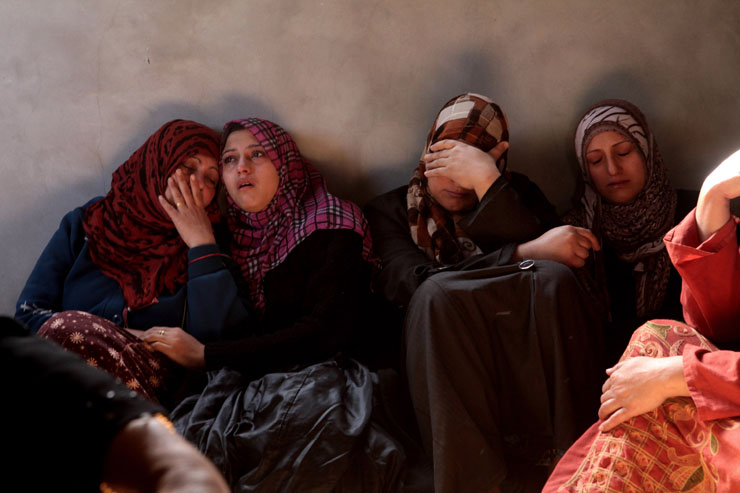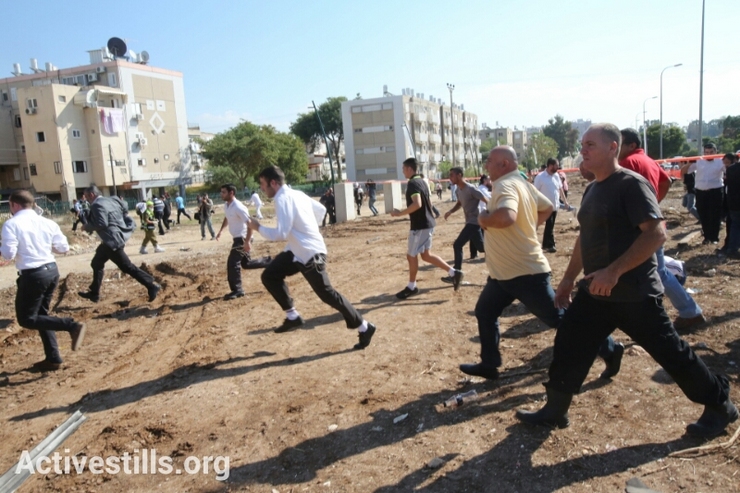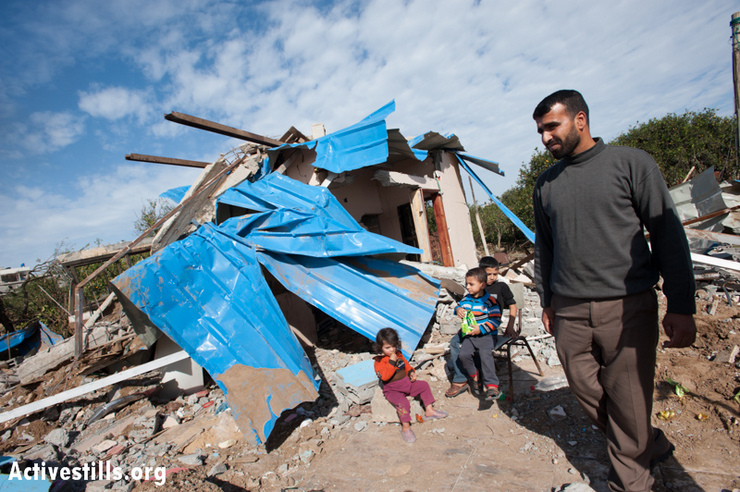A year after 165 Palestinians and six Israelis were killed, political leaders have yet to conduct independent, impartial investigations into allegations of human rights violations. If neither side demonstrates the political will to protect all civilians, the cycle of violations will become a recurring nightmare.
By Yonatan Gher

On 21 November 2012, 13-year-old Mahmoud Abu Khousa was killed when he was struck by a missile fired by an Israeli drone as he walked to a shop down the road from his home in the al-Manara area of Gaza City.
Delegates from Amnesty International’s International Secretariat examined the site of the missile strike a few days later. The missile struck Mahmoud on a wide road with good visibility from above. Israeli aerial surveillance should have been able to see that he was a child. Witnesses said there were no evident military targets in the vicinity at the time.
Mahmoud was killed on the last day of an eight-day conflict between the Israeli military and Palestinian armed groups in the Gaza Strip. Israeli forces had launched Operation Pillar of Defense on 14 November 2012 by killing the leader of the military wing of Hamas, following unlawful attacks by both sides in the preceding days.
Click here for +972’s full coverage of Operation Pillar of Defense
Within just over a week, more than 165 Palestinians, including more than 30 children and some 70 other civilians who were not directly participating in hostilities, and six Israelis, including four civilians, were killed. A ceasefire was reached on the evening of 21 November.
The Israeli military has not commented on the killing of Mahmoud in any of 18 strikes documented by Amnesty International, in which civilians were killed by Israeli drone-fired missiles during that tragic week.
Tens of thousands of Gazans fled their homes during the conflict. While the majority of these families were able to return to their homes after the ceasefire, they still struggle with the trauma of having had to flee, often under fire. Hundreds of families in Gaza remain displaced because their homes were destroyed in the conflict. A year on, most have been unable to rebuild because of the continuing Israeli restrictions on the import of construction materials into Gaza.
In Israel, too, civilians bore the brunt of the conflict. Palestinian armed groups fired more than 1,500 rockets and mortars during the eight days. The vast majority of these weapons were indiscriminate, meaning that they were not capable of being directed at military targets and therefore their use violated international humanitarian law.
David Amsalem and his family will never forget the morning of 15 November 2012. His wife phoned him at work at 8 a.m. to assure him that things were calm. But 15 minutes later, everything changed when a rocket fired from Gaza struck his apartment block in Kiryat Malachi, killing his 24-year-old son, Itzik.

“As soon as the alarm warning rang, our youngest son pushed my wife out of the apartment, but Itzik got delayed. My wife shouted ‘Itzik, Itzik!’ Our neighbor entered to get him out and he was also killed,” he told Amnesty International.
The neighbor was Aharon Smadja, 49, father of three. Mirah Scharf, 25, and mother of three, was also killed in the same attack.
One year after the fighting, neither side has conducted independent and impartial investigations into allegations of violations.
Israel’s Military Advocate General has received scores of complaints from Palestinian and Israeli NGOs, including cases of civilians who were killed in attacks which may well have been war crimes, but has yet to open a single criminal investigation to Amnesty International’s knowledge.
The Hamas de facto administration in the Gaza Strip has not conducted investigations of any kind into violations of international humanitarian law by Palestinian armed groups during the conflict. In addition to the four Israeli civilians unlawfully killed by indiscriminate rockets, there is evidence that several Palestinian civilians in Gaza were killed by Palestinian rockets.
The lack of accountability for serious violations of international humanitarian law, including war crimes, is systemic and goes well beyond the November 2012 conflict.
Israeli violations in both the Gaza Strip and the West Bank continue on a daily basis, including regular use of lethal force against Palestinian civilians posing no threat to Israeli forces. Since late February, Palestinian armed groups in Gaza have sporadically fired rockets and mortars towards civilian communities in Israel.
The fear of more bloodshed hangs like a dark cloud over men, women and children who feel trapped in a cycle of violations fueled by a climate of impunity. And if the fear of more deadly attacks wasn’t bad enough, those living in Gaza have to contend with the disastrous effects of Israel’s continuing land, sea and air blockade of the territory, together with restrictions imposed by Egypt. Gazans lack safe drinking water, face 12-hour power outages on a daily basis, and many struggle to access basic necessities such as adequate food and medicines.

These hardships were compounded on November 1 of this year when Gaza’s sole power plant was forced to shut down due to lack of fuel, further jeopardizing vital health and sanitation services.
“The world has forgotten Gaza, its women and children. The blockade is as bad as the war; it’s like a slow death for everyone in Gaza. We are paying the price for disputes between different powers. Isn’t that shameful? The world has lost its humanity,” ‘Attiyeh Abu Khousa, Mahmoud’s father, told Amnesty International last week.
The world continues to look the other way when it comes to the blockade on Gaza, which collectively punishes 1.7 million civilians. This stark violation of international law has been allowed to continue for more than six years. Unless Israeli and Palestinian leaders demonstrate political will to protect civilians –on both sides – the cycle of violations will become a recurring nightmare. And unless the international community ensures that ending human rights abuses and impunity for crimes under international law are prioritized, a just and enduring resolution of the conflict will remain elusive.
Yonatan Gher is the Director of Amnesty International Israel.
Click here for +972’s full coverage of Operation Pillar of Defense
